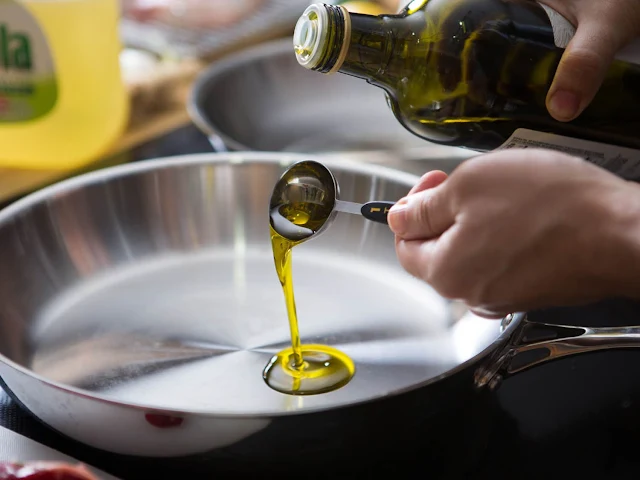When shopping at the grocery store, health-conscious consumers will probably select olive oil over canola and other vegetable oils because it is healthier. And with good reason! Olive oil will always have more benefits than its substitutes. Sadly, the way a lot of health-conscious consumers use that olive oil at home negates these advantages, making it just as dangerous as what they were attempting to stay away from. Furthermore, a lot of people might not be aware that not all olive oil is created equal and that the healthiest variety expires quickly. Fortunately, olive oil still has a wide range of delectable applications, and conscientious eaters just need to follow one straightforward usage guideline when cooking.
Olive oil has been around for thousands of years, in fact, olives are one of the oldest known foods. While there is a lot of information on the subject, it is no doubt that the oil extracted from olives is an extremely healthy oil. In fact it is safe to say that it is one of the healthiest oils that is available to us today. With its array of benefits including: anti-inflammatory properties, cardiovascular, digestive health, bone health, eyesight, anti cancer and many more benefits, olive oil truly is an incredible super food!
Most people are aware of the amazing benefits that olive oil provides, but the majority of people are not aware of the adverse properties that the olive oil contains when it is heated. When heated, even at extremely low temperatures all the amazing enzymes and health benefits that the oil contains are destroyed, and in turn the oil itself transforms into a trans fat. This is of the worst types of fats to consume including animal fats. Man made trans fats can increase your ‘bad’ cholesterol and decrease your ‘good’ cholesterol.
Even heating olive oil at a very low temperature causes this oil to transform into this unhealthy, rancid state. Olive oil is better left alone, the way it is, at room temperature. Olive oil is excellent for making salad dressings, using as a dip for bread, and you can even drizzle it over your favorite cooked dishes for that divine, distinctive flavor.
When purchasing olive oil from the store there are a few important things to look out for. There is a lot of demand for this oil, and unfortunately the supply does not meet this demand. Many of the oils that are sold in the store as pure olive oil are actually mixed with other oils to expand the amount of actual olive oil that is used.
UPDATE:
“Due to its chemical structure and a large amount of unsaturated fats, cooking makes extra-virgin olive oil very susceptible to oxidative damage. However, during this interview I learned that extra-virgin olive oil has a significant draw-back even when used cold – it’s still extremely perishable!
As it turns out, extra-virgin olive oil contains chlorophyll that accelerates decomposition and makes the oil go rancid rather quickly.
In fact, Dr. Moerck actually prefers using almost tasteless, semi-refined olive oil rather than extra-virgin olive oil for this reason,” writes Dr. Joseph Mercola on his article “New Warning About Olive Oil.”
